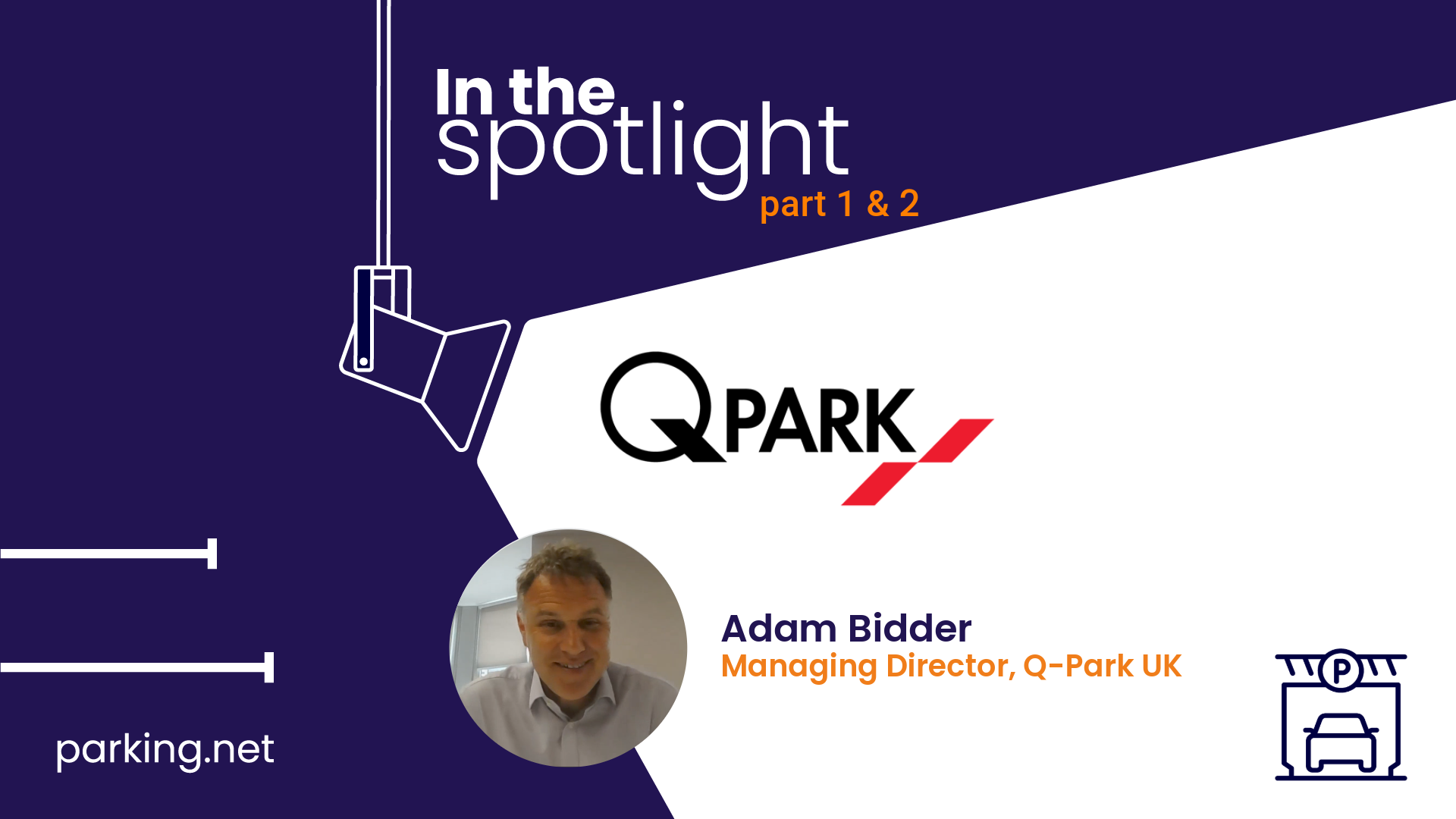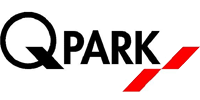
In today's blog, we feature a two-part In the Spotlight interview with Adam Bidder, Managing Director of Q-Park UK.
Q-Park is renowned for its high-quality parking solutions and innovative approaches to urban mobility. Throughout these interviews, Adam shares his extensive experience, the strategic vision behind Q-Park's growth, and the future trends shaping the parking and mobility industry. From their pioneering initiatives in off-street parking to the integration of advanced technologies, this conversation sheds light on how Q-Park is leading the transformation in urban mobility.
Q-Park - Leveraging Experience and Industry Trends for Success | Part 1
1. Could you please provide a brief introduction of yourself and an overview of Q-Park for our audience?
Adam Bidder:
Yes, of course. My name is Adam Bidder. I'm the Managing Director for Q-Park in the UK and Ireland. I've been with the business for over 17 years. Q-Park is based in Maastricht, the Netherlands, and we operate in seven countries in Northwest Europe.
Traditionally, the focus has been on off-street parking solutions, though in recent years, we've expanded to on-street offerings in cities like Amsterdam and Dublin. We operate in over 300 cities across Northwest Europe, managing over 700,000 parking spaces.
Our focus is on providing quality service. When Q-Park was founded over 25 years ago, the "Q" stood for quality, reflecting our mission to provide quality solutions, initially through parking and increasingly through other mobility solutions.
2. With Q-Park’s history in the industry, could you elaborate on the key qualities and focus areas that define your approach to providing good parking solutions?
Adam Bidder:
Q-Park has its own house style as we call it in terms of its brand and its logo. We try and have a similar experience in the car parks in terms of the entrance to the car parks, in terms of the parking equipment, the brand walls that we have.
Not in every car park, but in a number of car parks, we have our own branding style, traditionally kind of the black pads on the gray background with white and red supplementing that.
And very much that's also moved in from the IT perspective. For example, we developed our own PaSS system, parking as a smart service. So that the brand, which traditionally, like a lot of brands, was more focused on the colors, the style, and the physical branding, if you like, has more and more gone into quality from an IT perspective as well. So whether that be pre-booking, contract sales, or customers perspective, or whether that be in other mobility services as well, such as EV - electrical vehicle rollout, which we've rolled across the estate in Europe.
3. Now, from your extensive experience in the industry, what trends do you see shaping the future of parking and mobility solutions? Where do you think the industry is headed right now?
Adam Bidder:
It's a good question. The industry—I've been with it for 17 years, and traditionally it was seen more as parking. It was very much either off-street parking or enforcement. Traditionally, the off-street would be more barriered, and if it was enforcement, that would be non-barriered either on-street or surface parking, for example, parking around other leisure facilities, whether it be a cinema for recreation, a pub or restaurant, or other functions, such as retail parks.
I think it's changed over time. One thing I've been very keen on is to look at the facilities more as what they can provide as part of an integrated solution for a city or town. The Q-Park philosophy has always been about providing a number of options for customers around the city center. Ideally, we would have a number of car parks located on the edge of a city center, so whoever is coming in from whichever angle or going to their final destination, whether it be retail, leisure, theater, etc., would go to a Q-Park. This reduces search traffic.
The expansion of that was more from a mobility hub perspective, which we've developed across a number of car parks in the UK, Ireland, and indeed across Europe. This might include offering car hire, EV, and other services. We work with partners such as BMW or other motor manufacturers. This means customers can use these mobility hubs for a variety of reasons.
Technology has also become increasingly important. Pre-booking, which was traditionally not used in city center car parks but in airport car parks like Heathrow and Gatwick, is now a service that customers want. They want certainty when they go to a particular location, and it's about that experience being more seamless. People don't necessarily want to pay cash and put money in machines.
I was in Bournemouth this week as part of a recent acquisition. A customer came up and was asking about the facility because it wasn't clear to them. We hope that customers will register with Q-Park, either on the app or however they want, and know they can drive in and out of facilities seamlessly, reducing their worries as they reach their final destination.
The industry is also seeing off-street and on-street enforcement facilities coming closer together. This was behind our acquisitions in Ireland with Tazbell Park last year and with Britannia this year. The industry is indeed going through quite a transition. Factors like mobility hubs and seamless customer experiences are crucial. Partnerships and collaborations within the industry are key to achieving these goals.
4. You mentioned factors like mobility hubs and seamless customer experiences. How crucial would you say are partnerships and collaborations within the industry to achieve these goals?
Adam Bidder:
I've always believed in working with other park companies. The British Parking Association does a great job, and it's important that we work together and share experiences. I try to meet up with other industry leaders regularly. For example, I'm having dinner with the MDs and CP at APCOA soon. Working together is important. You want to be the best in a well-perceived industry, not just the best in a poorly perceived one.
Working with partners such as car hire companies, motor manufacturers like BMW, hotels, supermarkets, and retail chains is crucial. Their customers want seamless and good service, and they want the parking asset to be available for their customers. Working together ensures that the customer can reach their destination seamlessly, and property owners can maximize the value of their assets. Technology and pre-booking help achieve this.
Q-Park - Strategic Acquisitions and Adapting to Customer Demands | Part 2
1. Can you tell us a bit more about Q-Park's recent acquisitions, you mentioned Britannia Parking earlier, and the strategic goals behind these moves. How do you envision these acquisitions impacting Q-Park's future?
Adam Bidder:
So we've made two acquisitions in the last 12 months in the UK and Ireland. We've been incredibly busy. During Covid, we assessed our business, using the time to stand back and look at our operations. I believe that offering a variety of services to both B2B and B2C customers is crucial. For instance, we cater to businesses like Waitrose, Greene King, hotels, and individual customers parking at our locations.
Previously, there was a perception that Q-Park only dealt with large, off-street multistory car parks. However, we also operate in airports and hospitals, building facilities that help NHS services expand. The acquisitions allow us to offer more options to our customers, maintaining a customer-first approach.
Meeting customers who were Britannia or our customers in the last five weeks since the acquisition has shown that we can now offer a one-stop shop solution, which I believe only Q-Park can provide, including advanced technology like PaSS and EV rollout. We will continue to trade under both brands, offering a seamless experience for customers across different locations.
This integration allows our Q-Park app users to park in Britannia locations, reducing the fear of fines and ensuring a smooth parking experience. It presents an exciting opportunity, and our success will be measured by our ability to deliver value to customers. The proof will be in the coming months.
2. Would you then say that being able to provide strong solutions within vastly different sectors like hopsitals, supermarkets, cities and so on, all within one brand and entity, it supports the growth of the industry? What are your thoughts on that?
Adam Bidder:
When I'm not in the parking industry, one of my hobbies is growing fruit and veg. Private investing is another of my hobbies. I'm very aware that most acquisitions fail, often for the wrong reasons. The rationale behind our recent acquisitions isn't just about making cost savings, but about growth. We believe this will allow Q-Park to enter new areas and provide more comprehensive services.
Our goal is to work as one management team, integrating Britannia and Park Rite Tazbell, to deliver these new opportunities. In just the first few weeks, I've seen how this can open up exciting possibilities for providing a one-stop shop for various customers, including retailers, supermarkets, pubs, and restaurants. By utilizing our combined technology and operating model, we can help customers make better use of their assets, generating income and attracting new patrons.
Ultimately, the aim is to enhance the customer experience, making their day seamless and enjoyable. People want to reach their destination without worrying about parking. If we get it right, as reflected in Google ratings and customer feedback, that's what they value. This integration will help us penetrate new markets and ensure Q-Park benefits financially while meeting the demands of both B2B and B2C customers. We believe this strategy will lead to success.







 About Parking Network
About Parking Network 

